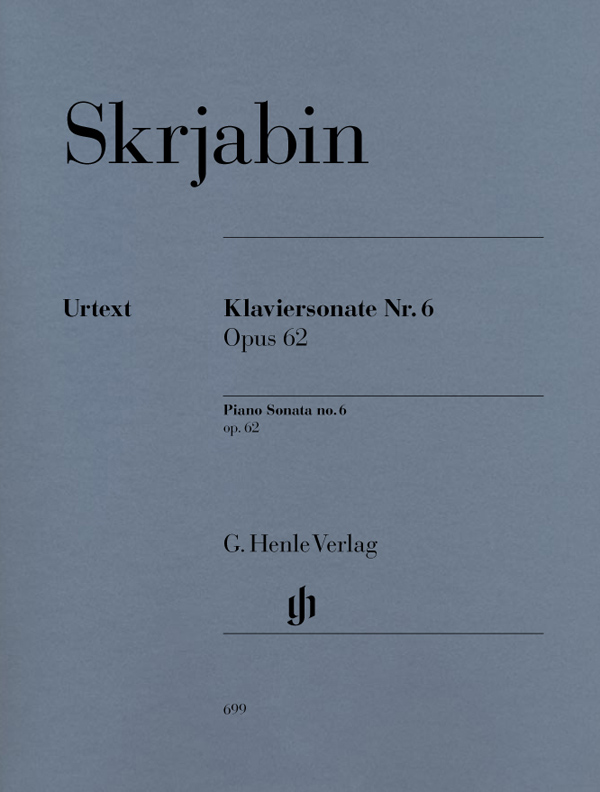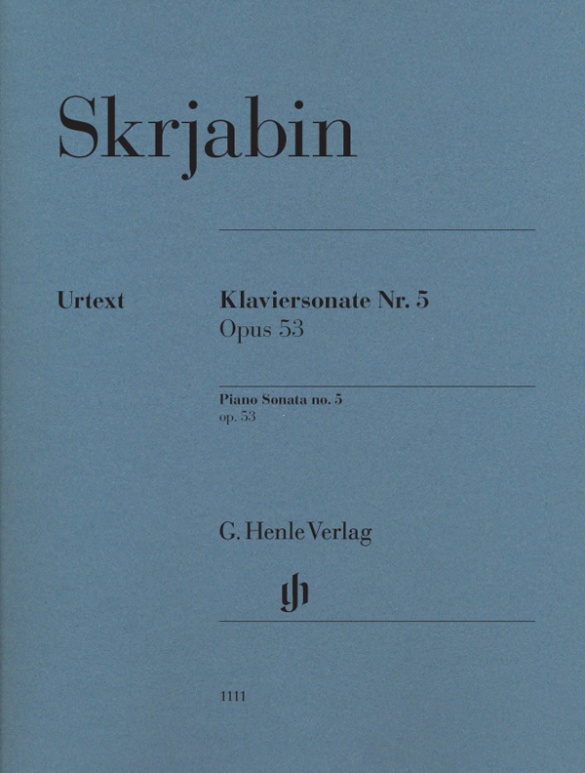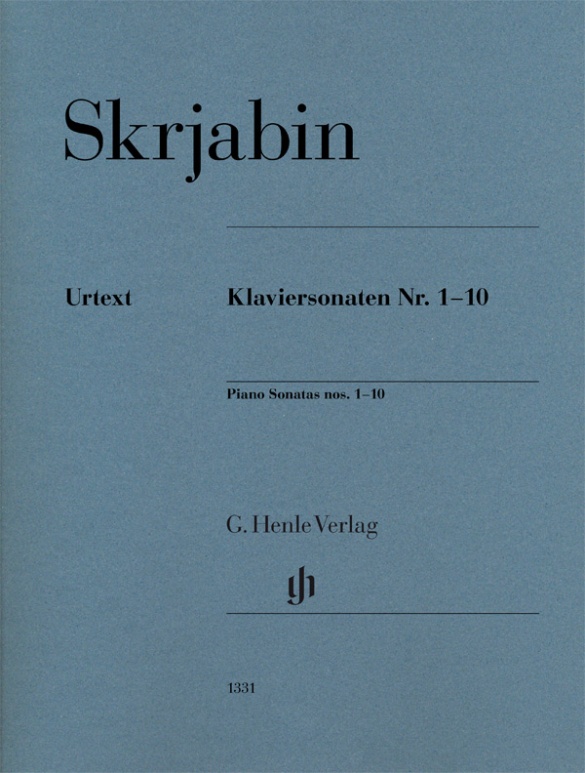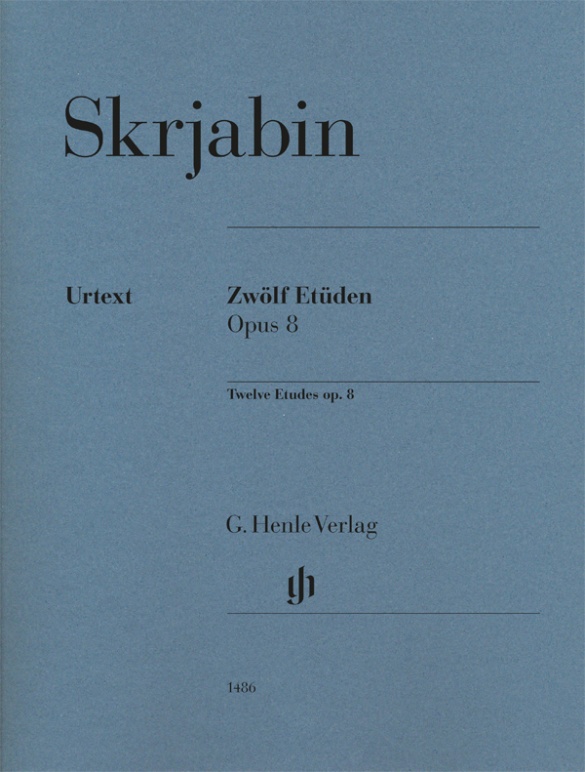

Alexander Scriabin
Twelve Etudes op. 8
Scriabin’s early Etudes op. 8 are at the heart of virtuoso piano repertoire, their methodical and pedagogical intent clearly visible. However, they are also 12 character pieces, revealing Scriabin’s whole creative universe from the dreamy and poetic to the powerful and passionate. The composer did not, however, make things easy for Belaieff, his publisher: final delivery of the long-promised Etudes (for which he had received an advance) was protracted because Scriabin was continually making revisions. “You are annoyed with me - completely justifiably, although I deserve some leniency as I am, in the truest sense of the word, working on them the whole day through”. His efforts were worth it! For Henle’s Urtext edition, Scriabin researcher Valentina Rubcova draws upon the composer’s own second revised version of the first printing, making detailed comparison with the surviving autograph. World-renowned pianist Boris Giltburg provides the fingering.
Content/Details
About the Composer
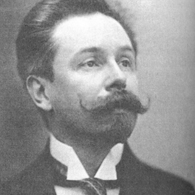
Alexander Skrjabin
Russian composer and pianist. The focal point of his oeuvre is his extremely unique piano music; in addition, he wrote important orchestral works.
| 1872 | Born in Moscow on January 6, the son of a pianist (his mother); she died in 1872. |
| 1888–92 | Piano studies at the Moscow Conservatory |
| 1888–96 | Twenty-four Preludes, Op. 11, containing all the hallmarks of Scriabin’s early period: broad, ornamental cantilenas underpinned by figurations and arpeggios in the style of Chopin, complex rhythmic structure from polyrhythms and syncopations. |
| 1892–1913 | Composition of ten piano sonatas. |
| 1896 | Travels to Paris, Vienna, Rome. |
| 1897 | Piano Concerto in F-sharp minor, Op. 20, in the style of Chopin. |
| 1897–1909/10 | He primarily composes orchestral pieces, including the major works “Le Poème de l’extase” (“The Poem of Ecstasy”) for large orchestra (1905–07), Op. 54, and “Prométhée ou Le Poème du feu” (“Prometheus or The Poem of Fire,” 1908–10); orientation toward Liszt and Wagner; programmatic music with occasional annotations in the musical score, incorporation of philosophical notions into his compositions, which are defined by various philosophical movements from around the turn of the century. Unusual intervals, harmonically at the edge of tonality. |
| 1899–1904 | Composition of his three symphonies, Opp. 26, 29, and 43. |
| 1904 | He resides in Switzerland. |
| 1906 | Invitation to the United States. |
| 1910 | Return to Russia. |
| 1908–10 | “Prométhée ou Le Poème du feu” for piano, orchestra, organ, choir, and clavier à lumière, Op. 60: enrichment of musical performance through plays of light. 1911–14, piano compositions, Opp. 61–74, with avant-garde harmonies. |
| 1913 | Beginning of the multisensory “Acte préalable” (“Prefatory Action”), which is never completed. |
| 1915 | Death in Moscow on April 27. |
About the Authors
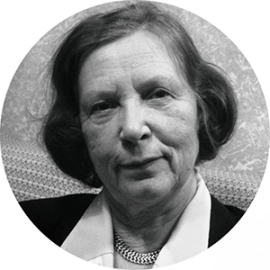
Valentina Rubcova (Editor)
Valentina Rubcova holds a doctorate in musicology, is editor-in-chief of the Moscow music publishing house “Muzyka – P. Jurgenson Publishing House” and deputy head of research at the Scriabin Memorial Museum Moscow.
Product Safety Informations (GPSR)

G. Henle Verlag
Here you can find the information about the manufacturer of the product.G. Henle Verlag e.K.
Forstenrieder Allee 122
81476 München
Germany
info@henle.de
www.henle.com
Boris Giltburg est notre guide dans cette nouvelle édition de l’op. 8 de Scriabine, un cycle de douze études écrites par le jeune compositeur dans sa vingtaine en 1895. L’ancien lauréat du Concours Reine Élisabeth propose des doigtés succincts et efficaces pour traverser cet ouvrage redoutable où l’étendue de la main est poussée jusqu’à la limite de l’impossible.
Pianiste, 2022Seit kurzem bietet der Henle-Verlag eine gelungene Neuausgabe von Skrjabins Etüden op. 8 an und hat dafür sämtliche Versionen und Quellen mit der üblichen Sorgfalt auf das Wesentliche reduziert. Valentina Rubcova ist Garantin dieser musikwissenschaftlichen Qualität, während sich kein Geringerer als der Pianist Boris Giltburg intensiv mit den Fingersätzen auseinandergesetzt hat. ... Alles in allem ein ausgezeichnetes Ausgangsmaterial für das sorgfältige pianistische Studium.
Pianist, 2023Die Neuausgabe des Werkes enthält alles, was man für ein ernsthaftes Studium des erstaunlich selten zu hörenden Klavierzyklus benötigt. Solides Hintergrundwissen (Vorwort), fachkundige Quellenbewertung (kritischer Bericht), sinnvolle Fingersätze (Boris Giltburg) und, last but not least, ein gut lesbares Notenbild.
Piano News, 2023Comme toujours chez Henle, la qualité de gravure et la lisibilité du texte sont irréprochables et le papier crème aussi solide qu’élégant.
Crescendo, 2023recommendations
autogenerated_cross_selling
Further editions of this title
Further editions of this title


